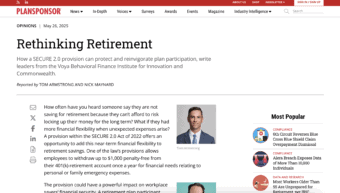Emergency Savings
A Foundation for Financial Security
Emergency savings is foundational to financial security, yet far too many people living in the United States lack liquid funds to manage unexpected expenses. Commonwealth builds and scales innovative and often surprisingly straightforward solutions to change systems, enabling financially vulnerable people to save for emergencies.
As partners in BlackRock’s Emergency Savings Initiative, we are elevating awareness of the emergency savings crisis in the U.S., testing innovations, and spurring complex systems with reach and scale to enable millions of low- to moderate-income (LMI) people to be more financially secure.
In the United States, millions of people lack access to proven, low-balance savings tools from employers, financial institutions, and other actors, and easy, attractive, and rewarding ways to build liquid savings they can draw from as needed. With 36% of Americans unable to manage a $400 emergency with savings, the issue of emergency savings is an urgent one for much of America. Black, Latinx, and women-led households are disproportionately impacted by this lack of access due to longstanding inequities.
Particularly for those living with a household income below $60K a year, an unexpected car problem or medical expense can amount to a financial crisis. Financial insecurity can contribute to individual and family stress that results in health issues, lost productivity at work, and other negative consequences. This has a reverberating impact that extends far beyond individuals and families, touching their employers, communities, and financial institutions.
For most people, saving for tomorrow is difficult when the realities of today are overwhelming. Emergency savings is a key first step to building financial security—leading to better outcomes for the individual, their family, employer, financial institutions, community, and ultimately the economy as a whole. Commonwealth partners with employers, financial institutions, nonprofits, investors, fintechs, retirement plan providers, payroll solutions providers, policymakers, and others to address this challenge. Our innovations in emergency savings are backed by rigorous original research and take a human-centered approach to meeting the needs, wants, and aspirations of low- to moderate-income people, while also providing business benefit.
Partner With Us
We are actively engaging with innovators, fintechs, financial services firms, industry experts, employers, and policymakers. Contact our emergency savings team or sign up for our newsletter, if you’d like to explore how your organization can join us in the audacious goal to make wealth possible for all.
BlackRock’s Emergency Savings Initiative
As part of BlackRock’s Emergency Savings Initiative (ESI), Commonwealth works with the BlackRock social impact team, the Financial Health Network, and Common Cents Lab to address the emergency savings crisis. As partners in the ESI, we have elevated awareness of the emergency savings crisis in the U.S., conducted critical research into causes and solutions, and begun to spur complex systems with reach and scale to help millions of people living on low to moderate incomes become more financially secure.
Through over 30+ partners to date, the ESI is building the power of one-to-many channels to affect systemic, structural change, notably through deep work with recordkeepers, B2B fintech, and other workplace solution providers, including payroll providers.
When a recordkeeper, payroll provider, or fintech offers an emergency savings solution to their customers, such as employers or financial services firms, it results in tens of millions of people having the ability to save.
Innovations to Enable Emergency Savings
Our innovations in emergency savings are backed by rigorous consumer research and take a human-centered approach to meeting the needs of working people living on low to moderate incomes.
Some examples of our work include:
- Autosave
Our work with employers includes employee savings programs, in which automatic post-tax deductions are deposited into savings, enabling workers to build emergency funds. Commonwealth’s work with the Consumer Finance Protection Bureau resulted in new policy guidance opening the door for employers to automatically enroll employees in emergency savings deductions. - Recordkeeper & Payroll Provider Interventions
We collaborate with retirement recordkeepers and payroll providers to develop innovations that make building emergency savings easier and more engaging for employees by leveraging the systems they already use to manage their paychecks and retirement. - Low- or No-Fee Liquid Savings Accounts
Accounts that meet the needs of financially vulnerable consumers reduce barriers such as withdrawal limits or minimum balance requirements, encouraging people to build savings and use them when emergencies occur. - Prize-Linked Savings
Prize-linked savings programs incentivize savings by offering a chance to win prizes while saving. Commonwealth’s groundbreaking research and pilots in this area have generated billions of dollars in savings for financially vulnerable individuals and led to federal and state policy change enabling financial institutions to offer these accounts. - Windfall Moments
Our work includes Rise with the Raise, which examines opportunities for workers to use wage increases as a savings moment. Other initiatives include SaveYourRefund, which helped more than 9,000 tax filers save over $7.5 million from 2013-2019 (and is now operated by AARP Foundation) by splitting part of their tax refund into a savings account. - Gamification
Game mechanics can transform the often mundane and stressful activity of saving into a fun and engaging experience. Commonwealth has conducted significant research and innovations in gamified programs that help incentivize saving.
58% of households making under $60,000 do not have $400 saved for an emergency.
COMMONWEALTH ANALYSIS OF Federal Reserve rEPORT ON THE ECONOMIC WELL-BEING OF U.S. HOUSEHOLDS, 2020















